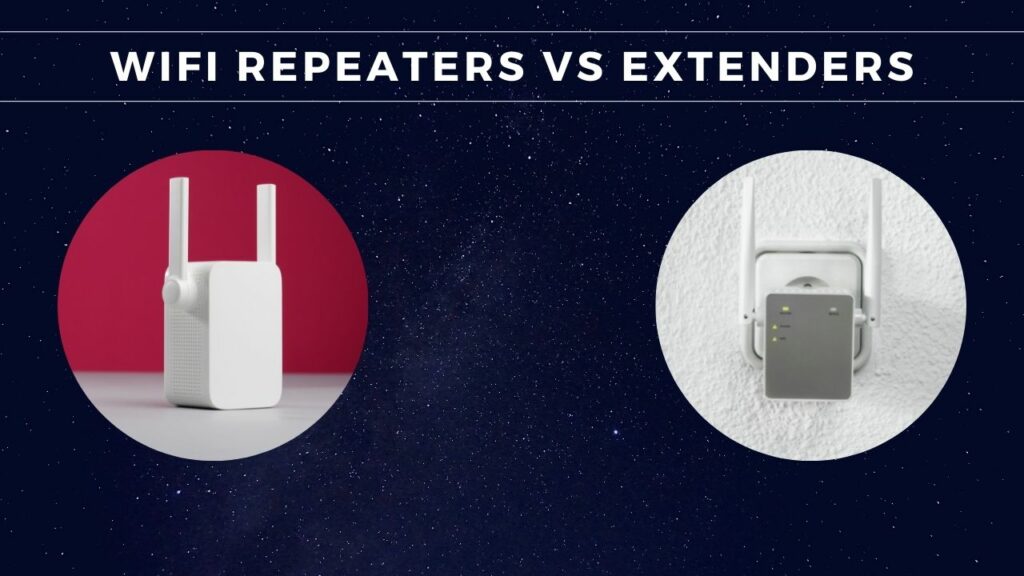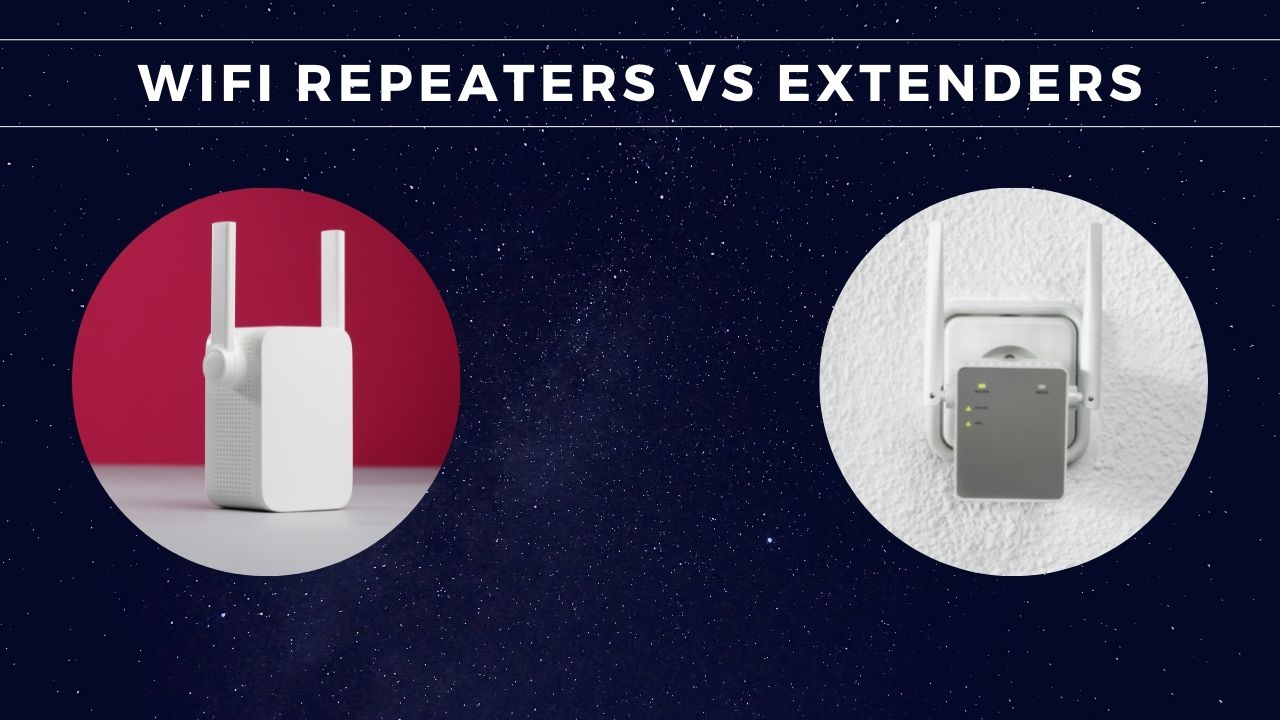
WiFi Repeaters vs Extenders: How Do They Differ?

With the latest technology, homes are turning into smart homes. The key to constructing a smart home is to have an uninterrupted wireless network all across your home. Otherwise, your Wi-Fi-enabled devices, such as computers, smart cameras, voice assistants, and others won’t respond to your commands. However, having a steady and stable internet connection at every nook and corner of a home is quite a challenge.
On the other hand, relying on a single router for a bigger home might invoke connection issues. That’s why users deploy WiFi repeaters or WiFi extenders. They help to eradicate dead zones all-around your home.
But, do they have the same network component? No. Hence, you might be thinking about which one to acquire in the conquest of WiFi repeaters vs WiFi extenders.
Let’s find out the prime differences between a WiFi repeater and a WiFi extender. It will assist you to select the right device to eliminate dead zones in your house.
WiFi Repeaters: What are they?
Before you dig more about the controversy of WiFi repeaters vs WiFi extenders, you should learn what they are. Any WiFi repeaters are equipment used for boosting the wireless connection. Additionally, they expand the Wi-Fi signal range.
WiFi repeaters have built-in antennas to receive wireless signals from your router. After receiving the signal, it rebroadcasts the signal to a wider area. As much as any WiFi repeater tends to expand the WiFi signal across your home, the signal tends to become weaker.
Since WiFi repeaters create a new point you have to connect to, you can notice a reduction in bandwidth of up to 50%. As a consequence, you will experience a slower transfer rate. It might be annoying when you have to transfer large files or while streaming online.
Additionally, you have to plug a Wi-Fi repeater into a good signal reception place. Otherwise, you won’t get an improved signal quality even though you have plugged in a WiFi repeater. Moreover, thick concrete walls, electronics, metal devices, and microwaves can rupture your WiFi repeaters’ functionality.
Overall, Wi-Fi repeaters are great for expanding the Wi-Fi signal. But, you might have to compromise on supported bandwidth. Additionally, long distances are a challenge for Wi-Fi repeaters. Therefore, you might hesitate to invest in a WiFi repeater when you have a bigger home or office.
If it’s a house with average square footage, then a Wi-Fi repeater is good. Just plug it into a place between the router and the place from where you want to have a stable connection. Make sure that you have to connect to the network that your Wi-Fi repeater creates.
However, Wi-Fi repeaters are first-generation WiFi extenders that repeat the same wireless signal.
Wi-Fi Extenders: How do they Work?
Both the WiFi repeaters and WiFi extenders are boosting devices to improve the existing wireless network. However, WiFi extenders are quite powerful in the battle of WiFi repeaters vs WiFi extenders. WiFi extenders use a wired connection to connect to the main router.
You have to connect the WiFi extender to your primary router through an Ethernet or a coaxial cable. It’s just like adding another router to improve the overall experience with wireless networks. Setting up a WiFi extender won’t reduce the bandwidth. Additionally, it doesn’t have to suffer due to thick walls, microwaves, or other similar interfering objects.
WiFi extender is the ideal device to revive internet signals to places where it was hard to get a signal. Yet, wireless WiFi extenders have appeared in the market. You can set them up easily by following the instructions. You can move WiFi extenders from one place to another as per your need.
Primarily, the WiFi extender boosts the signal range. But, it creates a strong signal area instead of a weaker signal zone like WiFi repeaters. It extends the WiFi signal to cover areas with poor reception. And, that’s how it differs, and the discussion comes to the competition of WiFi repeaters vs WiFi extenders.
Comparison of WiFi Repeaters vs WiFi Extenders
So, WiFi repeaters simply rebroadcast the existing WiFi signal and it results in weaker signal strength. Whereas WiFi extenders literally extend the area of the signal and you get a bigger coverage. WiFi extenders are also known as WiFi range extenders. Additionally, WiFi extenders connect to the main router through a wired connection. This means that you get a stable network.
On the other hand, you have to wirelessly connect a WiFi repeater to your router. By the way, WiFi repeaters are more economical choices compared to WiFi extenders. Therefore, if you are on a tight budget and need to boost your network experience, then go for WiFi repeaters.
Furthermore, WiFi repeaters are easy to configure. These are plug-&-play devices that you can place anywhere between your router and dead zones. However, the setup of WiFi extenders is a bit more tedious than that of WiFi repeaters. Additionally, the bandwidth strength might fluctuate from one corner to the other when using a WiFi repeater.
The case is not the same with WiFi extenders. You can expect the full potential of network connectivity, and it remains stable when you count WiFi extenders. The price tags of both the WiFi repeaters and WiFi extenders are almost the same.
Well, WiFi repeaters make more sense when you want to rebroadcast WiFi signals from a router. Additionally, there should be no obstacles. Well, you should use a WiFi extender if you want a strong internet connection across your home and there are interferences.
What Should You Try First: WiFi Repeaters vs WiFi Extenders
Before you try any WiFi repeaters or WiFi extenders, check out if you can reposition your router. Relocating the router to a more convenient place might help you eliminate network issues. If that doesn’t work, then you can choose any one of them from the battle of WiFi repeaters vs WiFi extenders. Make sure that you connect to the right access point after you equip and configure the WiFi extenders or repeaters.
